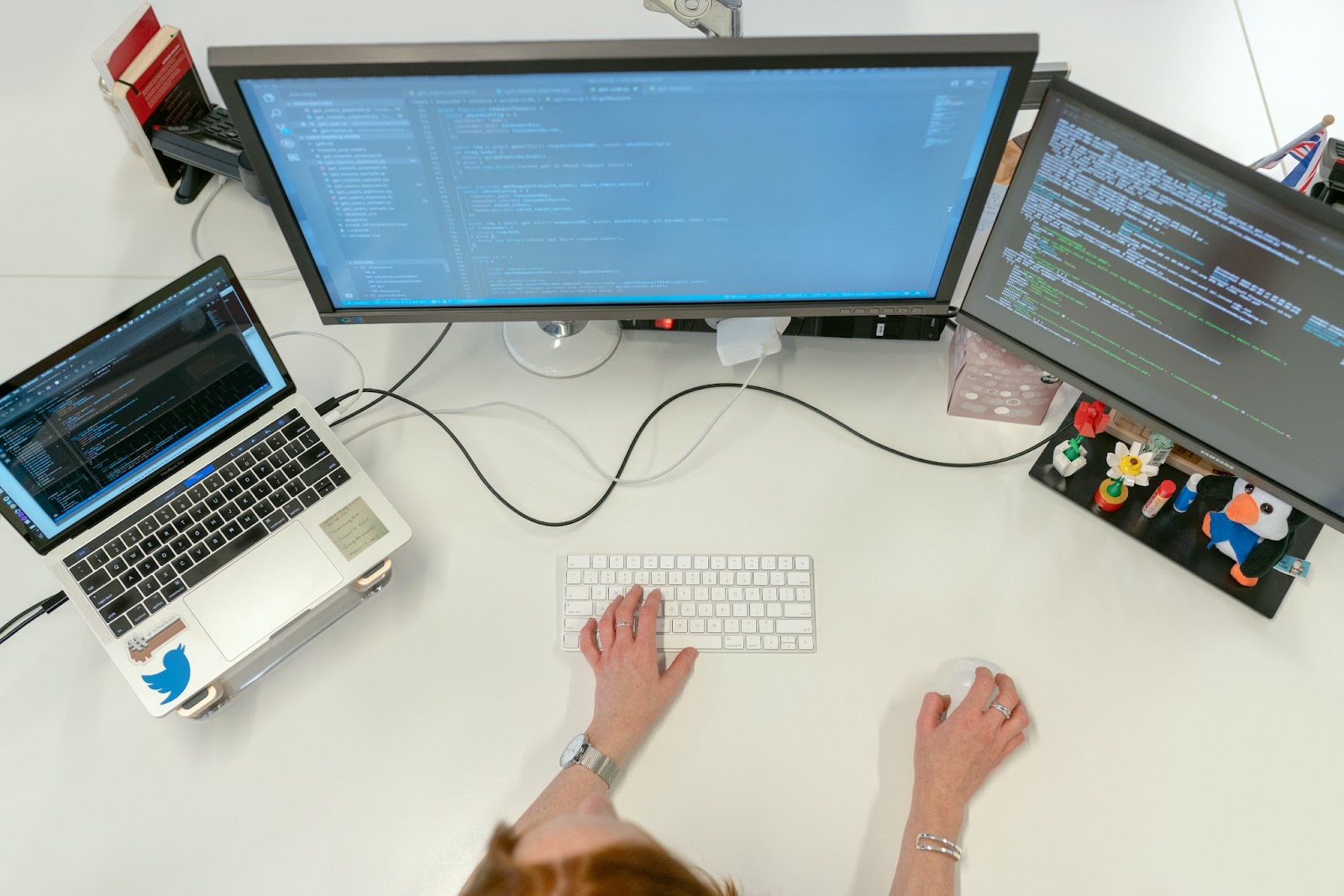1. Register your interest in Springpod’s Technology Virtual Work Experience

Our technology work experience programme is a tech-lovers dream, with modules covering everything from computer science and programming to web development and design. Taking part in a virtual programme is an easy and relaxed way to start adding meaningful experience to your CV. In the programme, you’ll question leading industry professionals in live webinars, complete activities and quizzes. Once you’ve completed the programme you’ll receive a certificate. You can register your interest here to be alerted when the programme opens for applications.
2. Speak to people in your network

You might be thinking what network?! When you’re starting out other students, teachers and careers advisors are all people that should be in your professional network. A teacher or careers advisor might have a contact that could offer you a placement, after all, they’re always on the lookout for opportunities that could help their students. Another great resource is parents, ask yours or your friends - they’ll have professional connections too, so ask around, you might be glad you did!
3. Create your own website/app

Showcase your technical skills by creating your own website or app, you can then document the process and any other techy projects you’ve taken part in using a portfolio. Portfolios are a great way to demonstrate your passion, interest and the variety of skills you’ve acquired, and they really help when applying to jobs.
4. Freelance websites

The best thing about tech is that you can learn as you go and you can learn as much online as you could by doing a recognised qualification. The more projects you take part in the more skills and knowledge you’ll gain. Ask your friends, family or any small business owners you know if they need help setting up a website. You could end up setting up a blog and an e-commerce site - using and gaining two different skill sets!
5. Take part in a hackathon

A hackathon is a design sprint event where computer programmers and others involved in software development collaborate on software projects. They are intense (yet fun!) events and usually take place over a couple of days or weeks and the goal of a hackathon is to create a functioning piece of software or hardware by the end of the event.
6. Contribute to an open source project

Open source projects are shared online and openly available for anyone to view, use, study and modify, meaning that designers and developers from all experience levels can contribute. Open source projects are designed, coded, and maintained by people around the world. Some really well-known applications that have originated from open source work, such as WordPress and Firefox, many open source projects support not-for-profit causes, so you can know your work is genuinely making a difference.
7. Coding bootcamps

Similar to a hackathon a coding Bootcamp is an intense experience, where you’ll learn how to code and apply code to workplace projects. You can cover programming languages like JavaScript, SQL and Python. You’ll also look at current industry software, tools and techniques. The best thing about bootcamps are that you’ll learn so much in a short period of time and you won’t need any experience before you start. It’s important to note that a lot of coding bootcamps aren’t free so you’ll want to consider whether the investment is worth it.
8. Teach and volunteer

To some, tech can be pretty scary whether it’s the fact that it represents change or that they are worried that they simply can’t keep up or don’t know enough. People in tech often forget that not everyone is as excited about tech as they are! So think about volunteering to teach people that are older to use tech in a way that can help them - you’ll get plenty of experience in dealing with the IT/people side of things. This experience will look great on your CV as it will show that you understand some of the limitations of tech!
9. Online courses

There are hundreds if not thousands of online courses available and many of them are free, Google and Apple are some of the biggest providers of tech-forward courses and they often offer recognised certificates and qualifications.
10. Try to secure an internship

You might be thinking ‘well obviously! If I had a summer internship I wouldn’t be reading this article!’ - we get you. Securing an internship is hard work and we’re not claiming to have all the answers, but we do have a tool that could help! Use our email template to reach out to your favourite technology companies. Take some time to personalise it with any experience (and passion!) and then start sending it out.
Remember persistence is key, so if you don’t hear back straight away - keep trying!
Check out some tech related Virtual Work Experience here!










